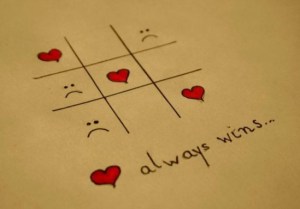Nutrition is today's new religion. How we chose to eat provides a sense of control and predictability in a world that is often out of control and not predictable. People find comfort, stability and reassurance in the regimen of adhering to a certain diet and what they believe it will do for their well-being and longevity.
The future of health promotion needs to address that while nutrition is one of the five major necessities of life our relationships (after survival needs are met) are the #1 most critical component to health – and for health promotion. Currently, the way we treat each other at work, in the media, politics, and in our homes, speaks of an underlying pathology; a lack of respectful communication, widespread cultural discontent and alienation. http://boston.cbslocal.com/2015/03/31/research-golden-rule-lost-among-coworkers/
In 1980, TIME magazine published a survey asking if people were happy or content and felt purposeful in their lives; 80% responded positively. Just over 10 years later, TIME magazine published another survey. This time there was only a 20% positive response.
The timeline of the epidemic of obesity in the U.S. runs parallel with the epidemic of discontent that was ushered in with the "Life Styles of the Rich and Famous" in the mid-to-late 1980's; followed by an exploding economy fueled by mega-rich real estate, dotcom and investment billions. No one wanted to be left behind in keeping up with the new, very rich "Jones".
Drive and ambition ripped across all sectors of our society; lifestyles were transformed with 2 paycheck households, over 50% of meals eaten outside the home, leisure time slashed. We felt the pressure to keep up, to belong to this explosion of plenty and in that process lost our collective sense of contentment and purposefulness.
Health promotion in the future will be about addressing the needs and drives of the whole person, not just the fuel that runs their engine. Promoting awareness that we all want and need to be valued and to make a meaningful contribution to others is an important starting point. So much of the disease, obesity, depression, unhappiness and untapped potential can be reversed by being valued and respected; when our cultural focus is less on conflict and competition – and more on respectful behavior and cooperation, health promotion will be the organic outcome of our mindful behavior towards ourselves and others.
trition is today's new religion. How we chose to eat provides a sense of control and predictability in a world that is often out of control and not predictable. People find comfort, stability and reassurance in the regimen of adhering to a certain diet and what they believe it will do for their well-being and longevity.
The future of health promotion needs to address that while nutrition is one of the five major necessities of life our relationships (after survival needs are met) are the #1 most critical component to health – and for health promotion. Currently, the way we treat each other at work, in the media, politics, and in our homes, speaks of an underlying pathology; a lack of respectful communication, widespread cultural discontent and alienation. http://boston.cbslocal.com/2015/03/31/research-golden-rule-lost-among-coworkers/
In 1980, TIME magazine published a survey asking if people were happy or content and felt purposeful in their lives; 80% responded positively. Just over 10 years later, TIME magazine published another survey. This time there was only a 20% positive response.
The timeline of the epidemic of obesity in the U.S. runs parallel with the epidemic of discontent that was ushered in with the "Life Styles of the Rich and Famous" in the mid-to-late 1980's; followed by an exploding economy fueled by mega-rich real estate, dotcom and investment billions. No one wanted to be left behind in keeping up with the new, very rich "Jones".
Drive and ambition ripped across all sectors of our society; lifestyles were transformed with 2 paycheck households, over 50% of meals eaten outside the home, leisure time slashed. We felt the pressure to keep up, to belong to this explosion of plenty and in that process lost our collective sense of contentment and purposefulness.
Health promotion in the future will be about addressing the needs and drives of the whole person, not just the fuel that runs their engine. Promoting awareness that we all want and need to be valued and to make a meaningful contribution to others is an important starting point. So much of the disease, obesity, depression, unhappiness and untapped potential can be reversed by being valued and respected; when our cultural focus is less on conflict and competition – and more on respectful behavior and cooperation, health promotion will be the organic outcome of our mindful behavior towards ourselves and others.


